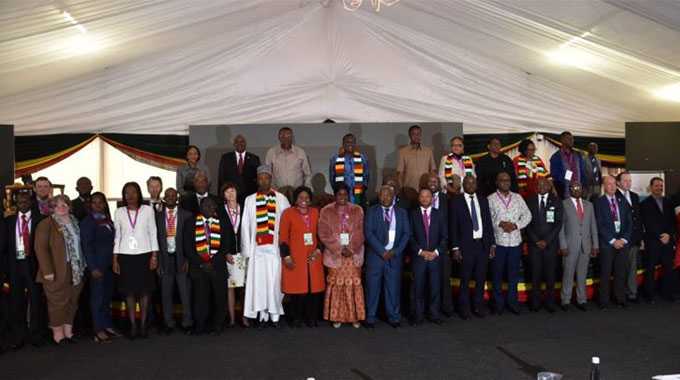Councils now highly politicised

It is regarded by various groupings as a critical arena for the resolution of Zimbabwe’s problems. It is against this background that I have decided to contribute on this aspect which builds up national politics.
The overall tone of the analysis is predominantly general and the Zimbabwean experience will be an important point of reference. Doubts have recently been expressed about the extent to which local authorities enjoy autonomy.
This was coupled with allegations of incompetence on the part of local governments in service delivery and staff welfare. The problems faced are a result of the economic challenges that swept across the country until four years ago.
In cities like Harare, Bulawayo, Chitungwiza, Gwanda and Victoria Falls, local governments have been accused of rampant corruption tied with a general decline in the standard of service delivery. However, this will not automatically discredit their relevance in shaping national politics.
Their importance revolves around their role as a sub-system of central government, ability to promote citizen participation and ability to further economic, political and social development.
A local government can be defined as a decentralised representative institution with general and specific powers devolved on it in respect of an identified restricted geographical area within a state. It is therefore a lower government which is embedded and enveloped in a higher national administrative system that enjoys wider powers.
Generally, local governments or authorities have two main purposes: participation and service. In participation the local authorities partake many inhabitants of the municipal area in the making or influencing of decisions pertaining to local public needs.
I believe the service function covers the economic discharge of public functions in line with public needs and should be beneficial to the well-being of the local community. Since it affects several aspects of our daily lives in water and sewage management, provision of parks, libraries, sports facilities, theatres and street lighting, its relevance should not be underestimated.
In line with local needs of a particular community, local government escalates in relevance as a system of governance best suited to provide for the above needs. In doing so national politics will be taking form and structure.
The importance of local government in shaping state politics revolves around three other aspects, namely their role, methods used to utilise local community for participation and the most efficient structure to mobilise resources.
It becomes an essential link in relation to citizens and government, a cornerstone in the structure of a democratic political system and creates an important training ground for future leaders in government. Local government is a virgin ground for experimenting with new ideas, policies and methods. It is relevant in the political spectrum of a state. Local governments are units within a unitary democratic system which are subordinate members of the central government vested with power and authority.
They have controlled governmental powers and sources of income to render specific local services. At the same time they have to develop, control and regulate geographic, social and economic development of defined local communities.
A local government is a legally independent entity which is not a mere agent of the central government. It is one that is free to decide on the administration of its respective area within the parameters set by the central government.
In the case of Zimbabwe, some members of local government do not understand that there is no total separation between them and the central government. That is why there is a lot of witch-hunting and bickering instead of going back to the rule book. Some believe that local governance is a separate political system.
Most political players even demonise local governments for no apparent reason so as to get political mileage. These individuals need to grasp the fact that it is only part of a broader system that should comply with national regulations. In the discharge of their duties they should not completely be divorced from central government.
The criteria for establishing a viable and efficient local government in a democratic system entails universal principles that are determined by a number of factors. The major considerations are the size of the population in a given area, an electorate, legitimate leaders to represent the local community and the feasibility of means to identify those leaders, clear areas of jurisdiction, services and facilities tied with the availability of financial resources.
The same considerations are crucial in the establishment of a national government. The most important values underpinning the concept of local government are service orientation and transparency in the use of public funds. Most local authorities in Zimbabwe have failed to live up to expectations due to financial problems and corruption and nepotism that have destroyed efficiency of operations. Such failures are always attributed to the central government, thus the two are inseparable.
In countries such as Britain, America and South Africa, local governments have played a role in the pursuit of state developmental objectives. Since they are the mallest and most approachable units in the total public administration system, I believe their crucial role is to break down and dismantle barriers between the individual and the government at large.
Of interest is the fact that there is less difficulty in influencing decisions at local government than at national level. It is practically impossible for a central government to perform all governance functions. I would like to strongly emphasise that the central government may withdraw, limit or extend the authority of a specific subordinate local authority to perform particular functions. As such, local government is relevant in shaping and structuring the national political field.
Above all, local governments are strongly built on historical, political, demographic and cultural ties.
In the event of restructuring and reforming them, it is imperative that due consideration should be given to these factors which shape their character. In any democratic system of governance local governments play a pivotal role in shaping and structuring national politics.









Comments